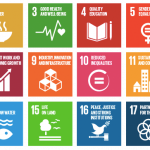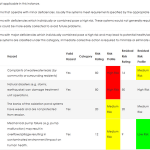Where does all the poop go?
Helping Develop Shit/Excreta Flow Diagrams for South Africa.
A recent report on progress related to sanitation and the SDGs (WHO and UNICEF, 2017) indicates that:
- Only 39% of the global population (2.9 billion people) used a safely managed sanitation service (i.e. excreta safely disposed of in situ or treated off-site);
- 2.3 billion people still lacked even a basic sanitation service, and
- 892 million people worldwide still practised open defecation.
For every US $1 spent on sanitation, the estimated return to society is US $5.5 (WWAP, 2017). However, creating sanitation infrastructure and public services that are sustainable and protect the environment is a major challenge, and requires an understanding of issues across the entire sanitation service chain, including waste containment (toilets), emptying (of pits and septic tanks), transportation (to sewage treatment facilities), waste treatment, and disposal/reuse. On-site sanitation technologies can represent viable and more affordable options, but only if the entire service chain, including collection, transport, treatment and safe end use or disposal, is adequately managed (IWA, 2014). A multi-disciplinary, systems level approach to Faecal Sludge Management (FSM) is required to ensure that untreated faecal sludge is removed from the community, not remaining at the household level, and that it is treated in a safe and effective manner.
The Sustainable Sanitation Alliance (SuSanA) provides the Shit Flow Diagram (SFD) tool (https://sfd.susana.org/) which is an easy visualised representation of excreta flows and serves as advocacy tool to ensure human excreta is managed safely through the sanitation supply chain. The benefit of the tool is that it offers an innovative way to engage relevant stakeholders including political leaders, sanitation experts, civil society organizations in a co-ordinated dialogue about excreta management. Therefore, it can be used by technical and non-technical stakeholders and can subsequently be used to support decision-making regarding sanitation planning and programming.
The Water Research Commission has appointed Emanti to develop SFDs for selected sanitation systems in South Africa. This project aims to provide guidance to decision makers on improving faecal sludge management (FSM) using a tool that takes into account all the components of the sanitation value chain. The proposed study aims to apply the SFD tool and its standardised methodology in up to 30 municipalities, and supporting the establishment of regional capacity within South Africa to prepare high quality SFDs. This project therefore provides an opportunity to further understand the sanitation situation at a number of municipalities throughout South Africa, and simultaneously develop a national overview of the situation within South Africa. This will allow appropriate strategies to be developed to close any gap within sanitation, wastewater effluent and faecal sludge management in South Africa.
The WRC SFD project was introduced to participants at the recent Municipal Benchmarking Initiative (MBI) Master Class 6 held within the three regions of KwaZulu Natal, Free State and Western Cape in February/March 2018. The Master Class helped participants understand the basics of SFDs, and an example exercise helped municipalities grapple with practical realities of developing a SFD. Feedback showed that 78% of participants were interested in participating in the WRC SFD Project, which provides an overwhelmingly positive indication of the need for such an initiative.
Specific sanitation related Sustainable Development Goals (SDG) goals include:
- (1) By 2030, ensure all men and women, in particular the poor and vulnerable, have equal rights to economic resources, as well as access to basic services; and
- (2) By 2030, achieve access to adequate and equitable sanitation and hygiene for all and end open defecation, paying special attention to the needs of women and girls and those in vulnerable situations.
The development of SFDs for South African municipalities will support and contribute to an improved understanding of the sanitation status in South Africa, and contribute towards understanding the global SDG baseline.
For further information on the WRC SFD Project, or if you would like to get involved, please contact us.













